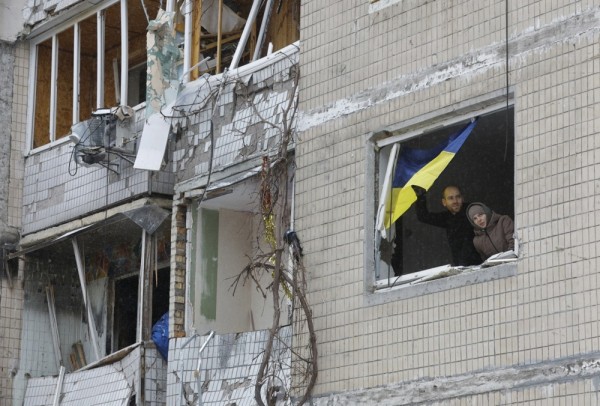H.E. Aleksander Kwasniewski
President of the Republic of Poland
Kancelaria Prezydenta RP
ul. Wiejska 10
00-902 Warsaw
Poland
Fax: (+ 48 22) 695 12 53
Vienna, 20 September 2005
Your Excellency,
The International Press Institute (IPI), the global network of editors, leading journalists and publishers in over 122 countries, is becoming increasingly concerned at the treatment of Grzegorz Gauden, editor-in-chief of the Polish Rzeczpospolita daily, by the downtown Warsaw District Prosecutor’s Office.
According to information provided to IPI, on 24 August, Gauden was called to the police station at Wilcza street, Warsaw, where a policeman, acting on the orders of the prosecutor, informed him that he was being charged with “propagation without a permission [of] news about the preparatory proceedings… and thus acted to the detriment of [Wladyslaw Jamrozy] pursuant to Art. 241, paragraph 1 of the Penal Code.”
The charge relates to a formal investigation by the prosecutor’s office on 23 June 2005 into an official complaint made by Jamrozy, the former president of the management board of PZU S.A, Poland’s dominant insurance company. Jamrozy’s complaint concerns an article in the 18 March 2005 edition of Rzeczpospolita titled, “Revelations from the Notepad of Former Head of PZU.” and written by Bertold Kittel, Michal Majewski and Piotr Smilowicz.
Using documentary evidence found by the daily, the article stated that in 1995, and in contravention of Polish law, Jamrozy allegedly founded a secret trust fund on the Island of Jersey and transferred PZU S.A. funds to the account. The report followed a series of articles in the media last year outlining a financial scandal at PZU S.A. Rzeczpospolita published a story on 13 October 2003 on this issue titled, “Jamrozy and Wieczerzak’s Secret Account – The Anatomy of a Fraud.”
In recent years, PZU S.A. has been embroiled in a series of financial scandals. In 2000, Jamrozy was suspended after accusations that he had secretly agreed to sell Deutsche Bank (DBKGn.DE) shares in another company to assist the bank in an unsuccessful hostile take-over. Deutsche Bank has always denied the accusation.
The offence of disclosure of information arising from preparatory proceedings falls under the section of the Penal Code titled, “Offences against [the] Administration of Justice.” The section makes it an offence to reveal information forming part of a formal investigation; however, in accordance with the newspaper’s own belief, the Prosecutor appears to have brought the charge without showing that Rzeczpospolita had access to the case files.
As editor-in-chief, Gauden can be prosecuted because the Bill Press Law Act, dated 24 January 1984, appears to make editors legally liable for offences stemming from a press publication. It is also believed that prosecutor’s office may also bring charges against the authors of the 18 March 2005 article.
In reviewing the charges, IPI notes a number of serious concerns. The case against Gauden was initiated after a complaint by Jamrozy, who has himself been investigated by the police for wrongdoing; as a result, a man who might in the future face criminal charges has been able to use the Penal Code and the prosecutor’s office to place the editor-in-chief of one of Poland’s most respected newspapers under considerable pressure.
In doing so, the prosecutor’s office is seriously impeding the work of an independent newspaper and it raises the possibility that Polish editors who find themselves in a similar position will practice self-censorship in order to escape criminal prosecution. The present situation also creates the curious anomaly whereby, before the law, there is no difference between a man who has been involved in a police investigation and the man who, in keeping with his profession, has brought aspects of the case to the public’s attention.
Your Excellency, this discrepancy has grave consequences not only for the Polish Penal Code, but also for press freedom and freedom of expression in a European Union (EU) member state. The media play an essential role in exposing corruption in any society and such work is manifestly in the public interest; by pursuing the case against Gauden, the prosecutor’s office is implying that, in such cases, the Polish public do not have the right to know what is happening in their own society.
IPI is also concerned that there might be a strong correlation between laws that hinder press freedom, including criminal defamation and insult laws, and the existence of corruption. According to the Transparency International 2004 Corruption Perceptions Index, Poland is ranked 67th out of 145 countries, the poorest rating for any EU member state.
Given the fact that, within the EU, Poland has perhaps the worst record for using criminal defamation against journalists, IPI believes that it is the chilling effect of these laws that prevents the media from fully exposing corruption in the country.
With this in mind, IPI would call on Your Excellency to remove all criminal laws that hinder press freedom and freedom of expression and to ensure that the media’s right to report in the public interest is fully protected.
We thank you for your attention.
Yours sincerely,
Johann P. Fritz
Director


